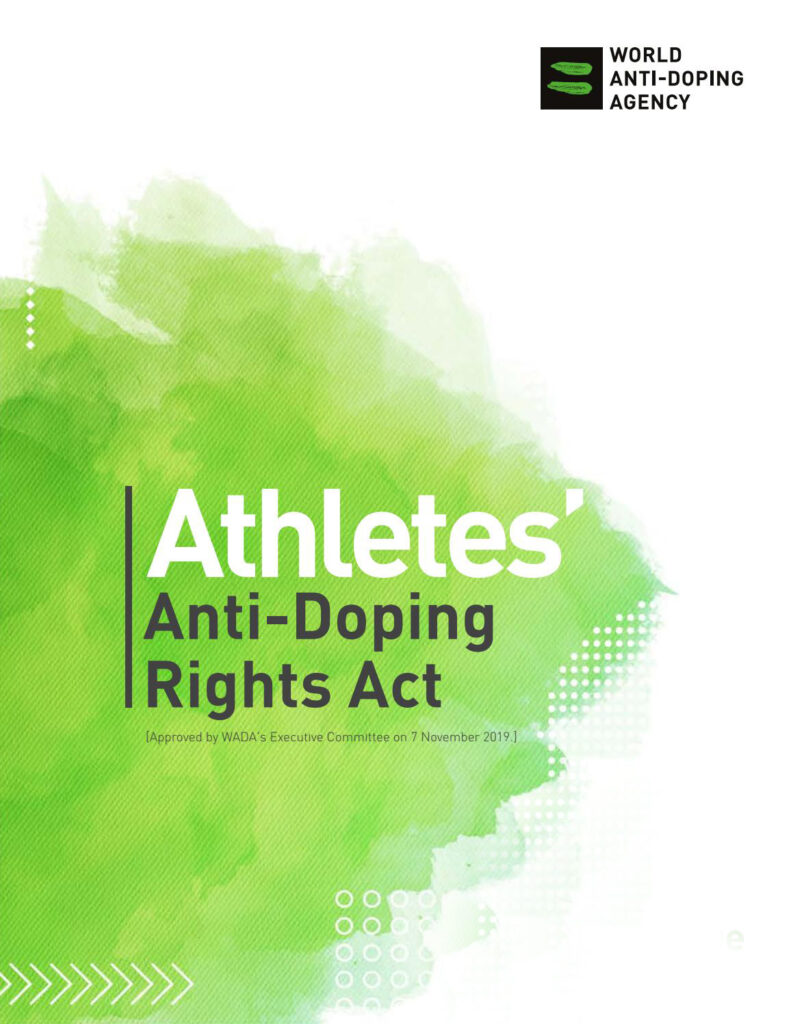Athlete’s Rights and Responsibilities
Athletes are central to clean sport. Their actions, behaviors and choices determine how clean sport is. To make the global anti-doping system work, you together with other athletes around the world need to commit to your anti-doping responsibilities. The World Anti-Doping Code states the roles and responsibilities that athletes have in relation to anti-doping.
Athletes are responsible to:
- know and abide by the Anti-Doping Rules, policies and practices
- be always available for testing
- take responsibility for what you ingest or use
- inform medical professionals that they should not use prohibited substances or methods, as per the WADA Prohibited List, and that any advice or treatment given to an athlete should not violate the Anti-Doping Rules
- inform Qatar Anti-Doping and your International Federation if you have committed an Anti-Doping Rule Violation within the last 10 years
- co-operate in any doping investigations when asked to do so
- disclose the identity of your support personnel upon request from an Anti-Doping Organization
Athlete’s Anti-Doping Rights Act
The Athletes’ Anti-Doping Rights Act promotes athlete rights within anti-doping and ensures they are clearly outlined, accessible, and universally applicable. This act includes:
- Equality of opportunity
- Equitable and fair testing programs
- Medical treatment and protection of health rights
- Right to justice
- Right to accountability
- Whistleblower rights
- Right to education
- Right to data protection
- Rights to compensation
- Protected persons rights
- Rights during a sample collection session
- Right to B sample analysis
- Other rights and freedoms not affected
- Application and standing
- Right to an anti-doping system free from corruption
- Right to participate in governance and decision-making
- Right to legal aid
Athlete’s Rights and Responsibilities-During Testing
ATHLETE'S RIGHTS
- Having a representative present throughout the doping control process
- Having a language interpreter present, if available
- Completing a training session or other activities while the Doping Control Officer (DCO) or chaperone observes
- Having the testing procedures explained, including how the sample collection equipment works
- Requesting to view the DCO’s credentials
- Having a choice of collection vessels and sample collection kits
- Receiving a copy of all forms used to document the processing of your sample
- Providing written feedback on USADA’s Athlete Evaluation Form and/or Supplementary Report Form
- Requesting a delay in reporting to the doping control station for valid reasons
- Requesting modifications if you have a disability
ATHLETE'S RESPONSIBILITIES
- Complying with the sample collection procedure**
- Reporting immediately to the doping control station unless there are valid reasons for delay (in-competition testing)
- Bringing a photo ID to the doping control station
- Staying in direct observation of the doping control officer (DCO) or chaperone from the time of notification until the sample collection session is complete
- Keeping the collection vessel and sample in their possession and in view of the DCO at all times
- Having control of the sample until it is sealed in collection bottles (the DCO may assist the athlete)
- Ensuring the sample code number is correctly documented on the doping control official record
- Ensuring all appropriate paperwork is accurate, complete, and signed
